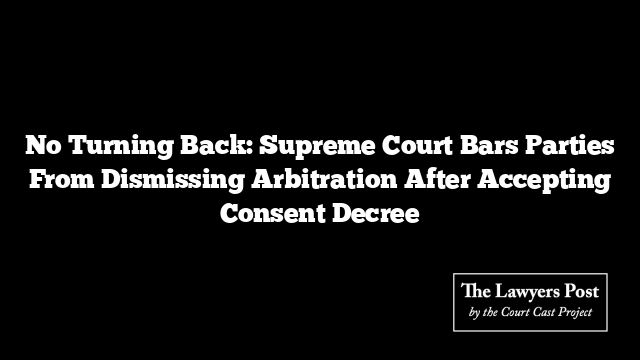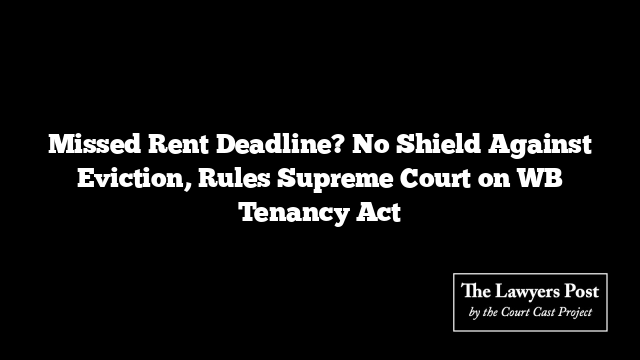The Supreme Court has drawn a firm line on arbitration disputes, making it clear that once a party has willingly embraced arbitration and reaped the benefits of a consent decree, it cannot later walk back and claim the dispute was “non-arbitrable.”
The ruling came in a long-running clash within the Guru Tegh Bahadur Charitable Trust. The trustees initially locked horns in court, but midway through litigation they struck a compromise—choosing arbitration, settling terms, and securing a consent decree from the District Court.
The twist came later: after the appellants sought enforcement of the award through interim measures, the respondents suddenly turned around, insisting disputes involving charitable trusts could never be settled by arbitration. The Commercial Court and High Court agreed, branding the award void. But the country’s top court had a different view.
Justices Augustine George Masih and Atul S. Chandurkar stressed that once the respondents accepted the decree—and even benefitted from it by having an FIR withdrawn and money paid—they were bound by their own conduct. The doctrine of estoppel, the bench explained, stops a party from approving an award one day and disowning it the next.
The Court observed: by consenting to arbitration, securing the compromise deed, and seeing their appeal disposed of, the respondents cannot now pretend the arrangement was a legal nullity. To allow such flip-flopping, it said, would damage the integrity of settlements and prejudice those who acted in good faith.
Calling out the “approbate and reprobate” conduct, the judges reinstated the appellants’ execution proceedings, reviving the settlement in full effect.





